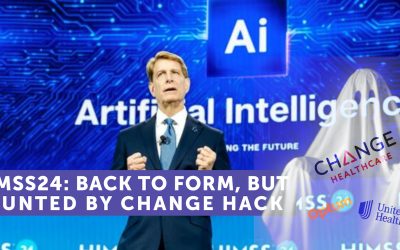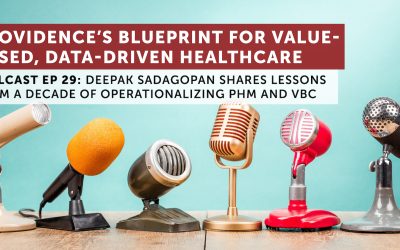Early this afternoon, The Markle Foundation announced broad industry endorsement for their just released Privacy Framework, a part of a broader effort by Markle referred to as the Connected For Health Framework. Quoting from the press release:
…endorsing a set of practices for new internet services that help consumers track and improve their health. The framework defines a set of practices that can help protect personal information and enhance consumer participation in online personal health records.
While the press release seems to include a who’s who of various stakeholders endorsing the new framework, with a significant number representing various PHR/PHA vendors such as FollowMe, Google, Microsoft, WebMD and even Intuit (don’t hear much from Intuit – what are they doing here?), I was surprised by three categories of stakeholders who were not on the endorsement list: employers, EMR vendors or government agencies. Maybe government agencies simply cannot openly endorse, so I’ll defer judgment.
But I have a real hard time with not seeing any EMR vendors on the list, after all, the vast majority of consumers with a PHR today, are using the one from their provider, which are typically nothing more than a patient portal to the host EMR system. I did ask Markle why that was on the conference call today they held today regarding the announcement to which they replied (paraphrased): EMR vendors leave privacy issues/policies to their customers to define, thus they are not directly involved/interested in the Privacy Framework. I can understand that logic, but still believe it would have been a good idea to have some representation.
Likewise with employers, who are increasingly sponsoring PHRs for their employees. Numerous surveys have shown a high distrust by employees of employer sponsored PHRs. Logically, enlisting employer endorsement would seem like a no-brainer/win-win and many employers I talk to are in strong support of consumer (employee) privacy rights. A very odd disconnect. Hopefully, we will see employers and employer organizations come forth and vocally support the Markle Privacy Framework.
Concurrent with the press release, Markle also distributed the results of a consumer survey conducted in May that primarily addressed the privacy/PHR adoption issue. Surveying nearly 1,600 consumers the survey did produced some interesting findings. Three stats from the survey I found particularly interesting:
- Over 90% of consumers want an opt-in only option for sharing their medical records. They do not wish to have their records shared, without informed consent. Not a surprising finding that consumers want to know who is accessing their data. Funny thing is, most consumers today haven’t a clue as to how much their records are already being used, albeit as de-identified data for a whole host of uses.
- Nearly 80% see value in the PHR concept, but only 47% are interested in using one – privacy issues an oft-cited reason for non-participation. I was quite surprised by such a high number seeing value in the PHR concept as the PHR definition used in the survey was quite limited.
- Less than 3% of those surveyed (which Markle extrapolated to represent the country) have an electronic PHR today. Most of these are sponsored by either a payer or provider and over 80% find value in using their PHR. Low adoption figure was another surprising number. My own research puts the adoption number around 5-7% and I can easily get to that 5% value with some simple back of envelop calculations.
In closing, wish to commend The Markle Foundation for the absolutely great work they have sponsored on the topic of consumer health through the Connected for Health initiative. When I first started doing research on consumer-facing healthcare IT, time and agan, I returned to various reports published by Markle as a basis for my research. If you have not already done so, I strongly encourage you to pay them a visit. It is also there that you will find all the information from today’s announcement, including those survey results I referenced above.




0 Comments